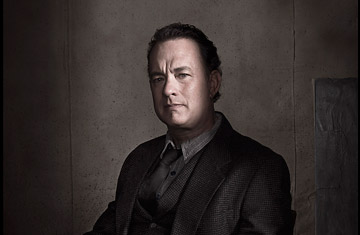
(7 of 7)
The Kennedy assassination is the fire-breathing dragon of U.S. history, and Hanks seems singularly hubristic about grabbing its tail. Once, when I interviewed Gerald Ford at his home office in Rancho Mirage, Calif., for a book, the ex-President pulled me aside, pointing to that week's incoming correspondence. Mail about his role in the Warren Commission was three or four feet high compared with a measly inch pertaining to his White House tenure. But Hanks is perfectly aware of the beehive he is about to kick over. He seems to relish the prospect.
And he is pleased that The Pacific has fulfilled an obligation to our World War II vets. He doesn't see the series as simply eye-opening history. He hopes it offers Americans a chance to ponder the sacrifices of our current soldiers in Iraq and Afghanistan. "From the outset, we wanted to make people wonder how our troops can re-enter society in the first place," Hanks says. "How could they just pick up their lives and get on with the rest of us? Back in World War II, we viewed the Japanese as 'yellow, slant-eyed dogs' that believed in different gods. They were out to kill us because our way of living was different. We, in turn, wanted to annihilate them because they were different. Does that sound familiar, by any chance, to what's going on today?"
There's no such thing as a definitive history. But what was once a passing interest for Hanks has become an obsession. He's a man on a mission to make our back pages come alive, to keep overhauling the history we know and, in the process, get us to understand not just the past but the choices we make today.
Douglas Brinkley is a professor of history at Rice University and a CBS News historian. His most recent book is The Wilderness Warrior: Theodore Roosevelt and the Crusade for America.
In an earlier version of this story, the Pacific atoll Tarawa had been misspelled.
